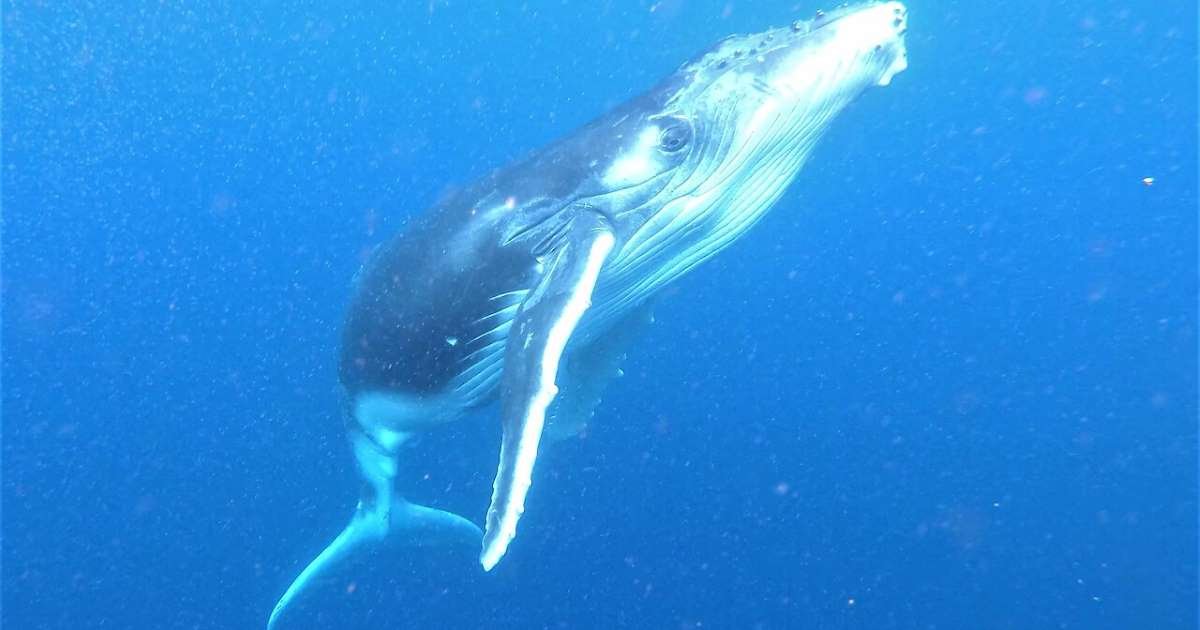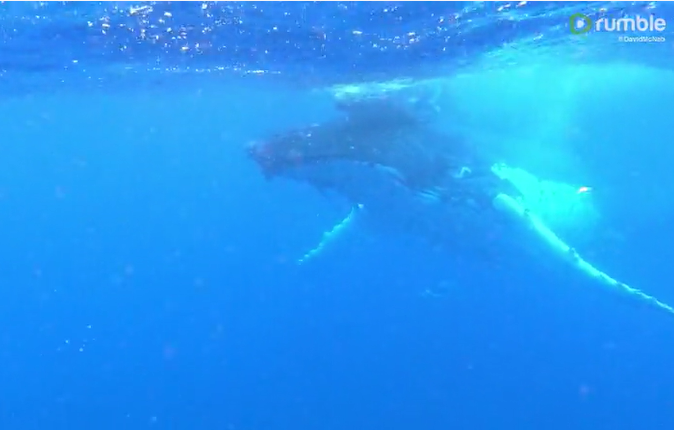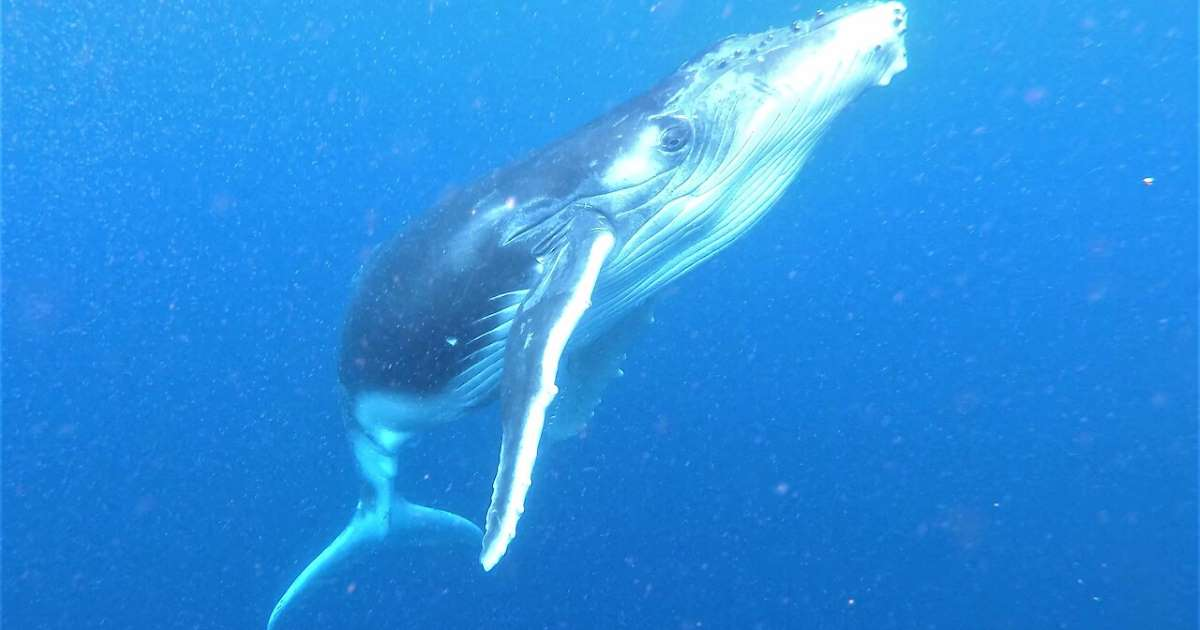Humpback whales are among the most intelligent sea creatures.
Anyone who has dived in an area where there are humpbacks can tell how they interact with humans.
Frequent divers know that it is totally usual and normal for a giant humpback to move and remain close to humans for minutes at a time.
However, it is neither very likely nor usual for a humpback to present its newborn to humans and those who experience it are really lucky – this is exactly what happened recently.
Watch the moment in the video below.
[rumble video_id=v65zp5 domain_id=u7nb2]
Video credit: Rumble
The people who witnessed this scene were the volunteer tourists visiting The Kingdom of Tonga, one of the very few places that allow people to swim and interact with humpback whales.
These divers carefully swam towards the mom whale and her two-week-old calf.
To their surprise, instead of reacting defensively and trying to save her child from the divers, the whale came closer to them. The baby was not intimidated by the presence of humans either!
He came near the humans, rolling and frolicking playfully. Both mother and calf swam near humans and seemed to love their company.
Tonga is one of the very few places in the world where there are no predators like large sharks and killer whales that can threaten the humpback whales.
The mother whales give birth in Tonga and remain here for some months to let the baby grow strong and big enough to go to the cooler northern waters, their natural feeding area.
These hefty animals eat krill, small fish and plankton by the tons.
To be well-nourished for the trip to the south to bear a baby, these whales store a thick layer of fat under their skin. Male whales also follow the females to breed and provide them with security when they are feeding their infants.
Evolution says that just 100,000 years ago, humpback whales happened to be the most intelligent residents of the earth. However, they were outsmarted by us, not a very long time ago.
Scientists regard them as a vital link in evolution and the latest studies reveal that they are more like us than we previously thought.
Replaced!




